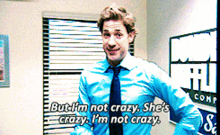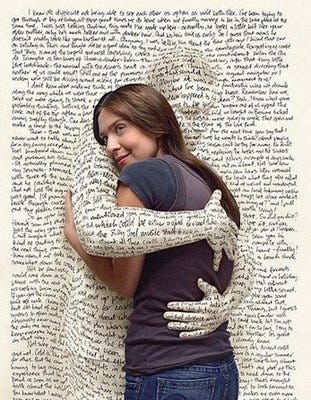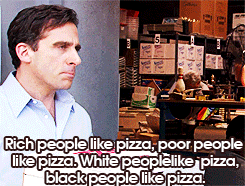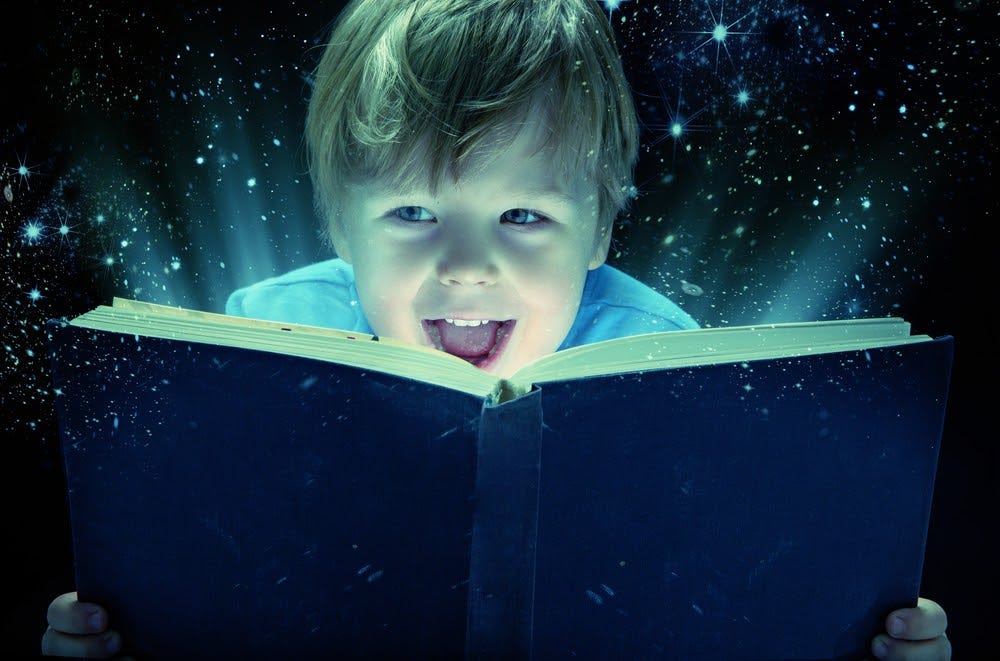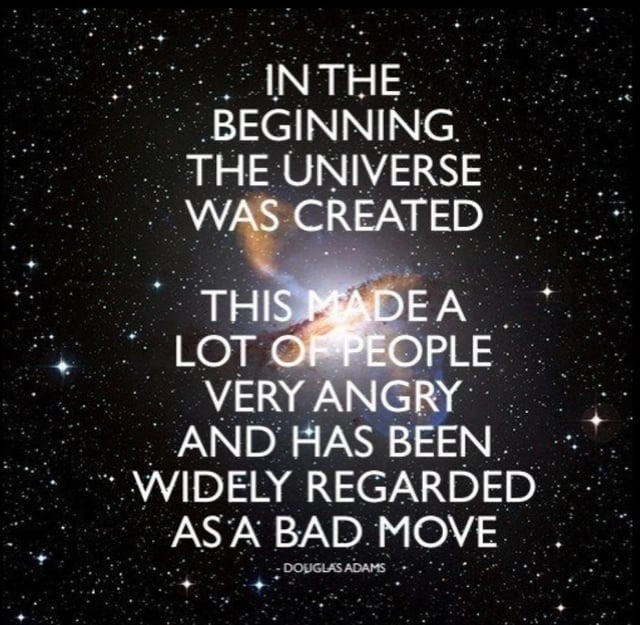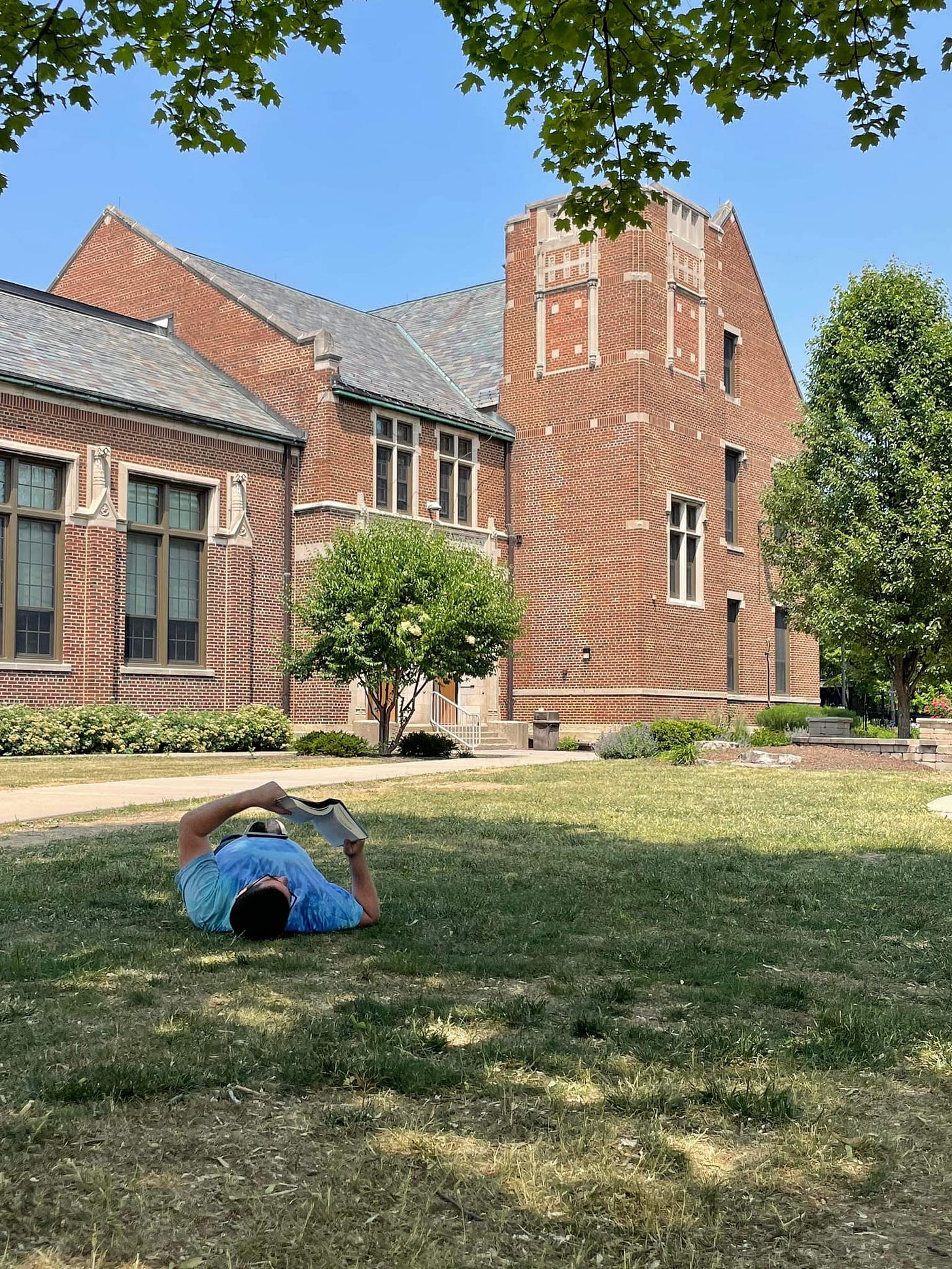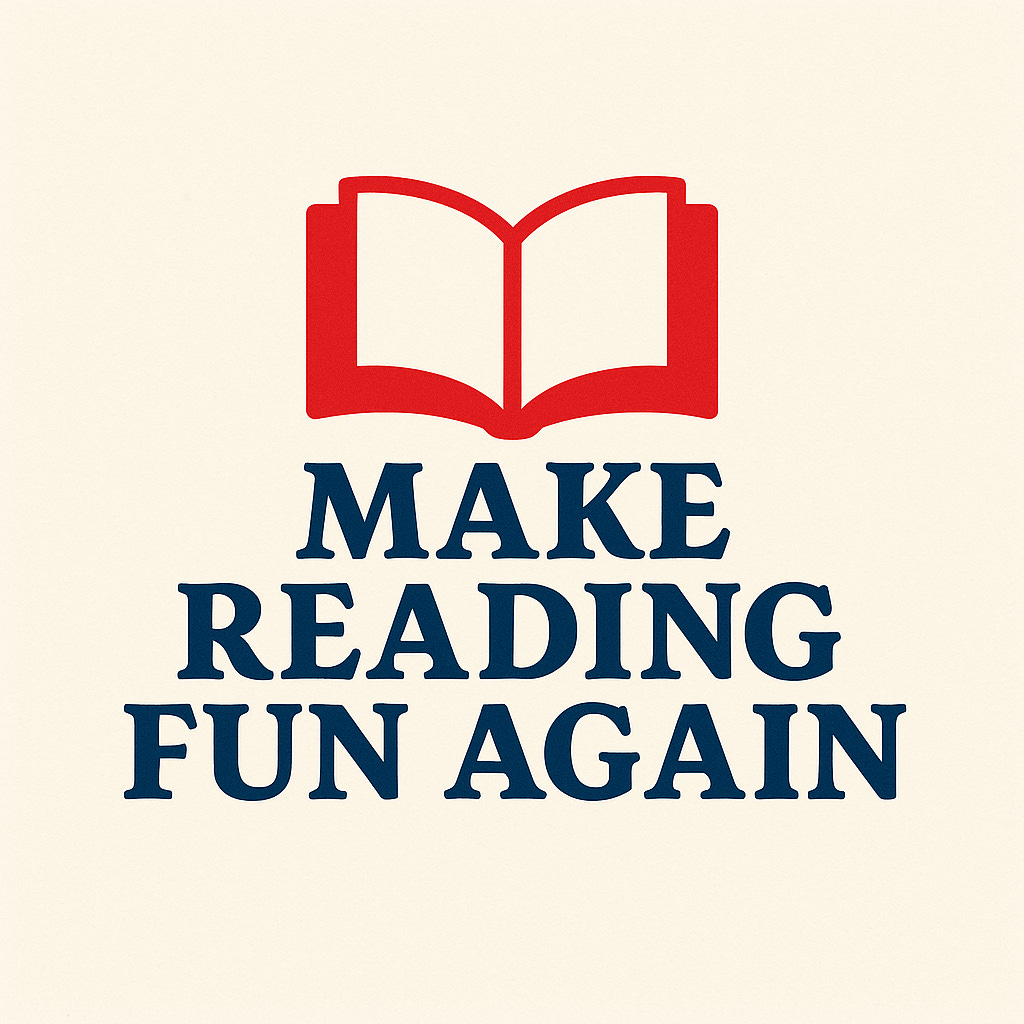Why Read?
Every year I am asked at parent-teacher conferences, “Mr. Crumpley, what could we do at home to help support our child?” Typically this question is asked from a parent of a kid who is already doing well in class. I answer the question the same just about every time: “Read.” Typically they let out an incredulous chuckle. “Oh, yeah, (student) really doesn’t like reading.”
Each year I teach reading (ELA, Literacy, English, whatever title you want to give the class) I start with the same questions for my students:
What are your feelings towards reading?
Do you read for fun?
What’s the last book you enjoyed reading?
Are there books at home?
Do your parents read?
Let me answer these questions for you:
I hate reading, it’s boring.
No
idk
No
No
Now, this isn’t 100% of the answers, but unfortunately it is about 90% of them. Kids aren’t reading. Their parents aren’t reading, everything is spiraling further and further downward.
As someone who loves reading this is a bitter pill to swallow.
Recently I sat in a data review meeting about test scores. Across the board, accelerated by, but not caused by, Covid, test scores are decreasing. The fall in reading is precipitous.
It prompted an interesting conversation amongst us:
Teacher 1: The problem is these kids just have no reading stamina.
Teacher 2: They don’t like reading.
Teacher 1: Yes, but it’s not just that. It’s like they physically cannot read more than a few paragraphs. Most of these kids glance at the reading passage, assume it’s too hard, and then just guess on the questions.
Teacher 3: So, what do we do about that?
(Silence)
Teacher 1: It’s a dilemma. Do we try to meet them where they are, giving them passages that are far shorter and simpler with far lower expectations, or do we try to push them to do something they are increasingly unable to do?
Teacher 2: I don’t know.
Teacher 1: On one hand, if we make it easier they might succeed, but also causing more damage in the long run when they’re not able to read more complicated texts.
There was no resolution.
Sometimes I feel like I’m being gaslit by my students as I try to convince them how great and important reading is.
“No one actually likes to read!”
“Reading is stupid, why should we read if we can watch videos or use AI?”
It’s been enough to make me doubt myself, do I actually like reading or am I just used to it?
As a teacher I am no stranger to having debates with students about the importance of a topic or a skill. “Why should you care about history? Easy, you need to be able to understand the past if you hope to have a hand in creating a future.”
But reading is seeming to become harder and harder to defend. Because in some ways, they’re right. Does anyone really need to read anymore?
So naturally, I took to the social media machines for help.
I asked a very simple question: Why should we read novels?
Here are some of the responses:
1. To Develop Empathy
Through reading we see the world through others’ eyes. We develop a sense of ourselves outside of our backyard. When we read stories of experiences unlike our own we gain a wider perspective of our world and we find the human in every one of us.
Why is this important? In a world so increasingly fractured and solitudinous we need something to hold us together, something that binds us to our neighbors, no matter how far, something that tells us, “That person has their own story, their own struggle, much like your own. Give them grace.”
2. To Escape
The world is heavy and maddening and, at times, completely nonsensical. Sometimes we read to escape this world. Reading can take you anywhere, it can put you in any shoes, on any planet. Reading novels, of any kind, is a way to escape this world for a place that, even if it doesn’t make sense, at least doesn’t make sense in a way that isn’t destabilizing.
Why is this important? We all need a way to unplug from our world in a beneficial way while still staying mentally active. Yes, your mind is definitely unplugged while playing video games, but it’s also numbing, it’s mindless. When we’re reading we are plugging our minds into a whole new world, escaping our own, but also seeing it, understanding it from entirely unknown angles.
3. To Understand the Human Experience
Humanity, believe or not, is universal. All humans desire the same things, human necessities are the same no matter the hemisphere. Everyone needs security, food, shelter. Everyone needs love, affection, friendship. When we read we are seeing this universal humanity on display. We are seeing that often our motivations, our desires, our hungers are shared, are valid, are real. Novels are full of these truths about the human experience. These truths can be far more vivid than simple facts, more deeply learned than any textbook could possibly teach us.
Why is this important? Too often we feel alone. In a way, reading opens our minds to the complexity, but also companionship, that are available to us in the world around us when we can understand that we all share so much more than we have separating us.
4. To Heal
I remember when, in my early 20’s, I stood on the precipice of two worlds, feeling out of place in either. Graduating from art school, a place I never felt like I fit in, and coming back home surrounded by people, that I no longer fit in with. I was stuck in some weird no-place, an alien to two worlds. I didn’t know who I was, who I wanted to be, where I belonged, what I would do with my life. I was left listless and wandering.
At the time I worked at a used bookstore, and as you can imagine, I spent much of my time reading. During this time I read Invitation to a Beheading by Vladimir Nabokov. In this novel we have a character imprisoned for an ambiguous crime (yadda yadda, bunch of weird stuff happens) and then at the end as he’s being marched out for his execution he makes the wise decision to reject the premise of this reality and simply walks away, in search for those “where, to judge by the voices, stood beings akin to him".
This nonsensical answer of rejecting our reality to seek out beings akin to myself was revelatory for me at the time. The idea that I don’t need to simply accept this dual choice of two unhappy options, but that I can pack up and leave my own execution, create my own reality. I’m still a work in progress on this front, but it was certainly therapeutic for the me of that time.
Why is this important? Sometimes we can accept truths absurdly told that we could never stomach given to us straight. Sometimes hours of therapy, or parental nagging, can be replaced by simply reading of the time the doomed man reduced his shackles to ashes and walked away.
5. It’s Fun!
Finally, yes, reading is just fun. Sometimes reading doesn’t have to be for any other purpose than to just put a smile on your face. And there can be any kind of novel or author that does it for you. For me, Kurt Vonnegut holds the key to my heart in this regard. There is no one I flat out enjoy reading more than Kurt Vonnegut. The tongue-in-cheek, the satire, the witticisms, the absurdity, the hidden poignancy, it all hits me, and for me, it is impossible to me to pick up a Vonnegut novel and not smile as I begin to read.
“Hello, babies. Welcome to Earth. It’s hot in the summer and cold in the winter. It’s round and wet and crowded. At the outside, babies, you’ve got about a hundred years here. There’s only one rule that I know of, babies — ‘God damn it, you’ve got to be kind.”
- God Bless You, Mr. Rosewater, Kurt Vonnegut
Why is this important? Fun = Good.
More than any of these individual reasons I think about how reading makes me feel.
I think about how, as a kid, reading Captain Underpants made me feel seen as a crazy boy with ADHD. I think about how it inspired the first story I ever wrote: The Adventures of Super Boxer Shorts (derivative, sure, but I was in 4th grade so I’ll give myself a pass.)
I think about how Harry Potter introduced me to a world where outcasts could have a home, could belong, could even be powerful.
I think about reading Hitchhiker’s Guide to the Galaxy for the first time in middle school and realizing, with wonder, the lunacy and humor that could be possible in a novel.
I think about how, in college, while still a film major, I sat rereading Martian Chronicles and sprang from my seat and yelled at my roommate: “That’s it, I’m changing majors! You can’t do this in a screenplay!” And then I promptly went to my counselor’s office the next day and changed to our school’s Fiction Writing program.
I think about laying on our stained break room couch at Half Price Books reading East of Eden. I think about Lee deciphering the story of Cain and Abel, I think about Timshel, thou mayest, a word and idea that has sunk so deeply into me that I cannot stop annoying people with it. The thought that anything, no matter what, may be overcome — as long as I am willing to put in the work — has been a steering force of hope for me, no matter how bleak things might be.
Reading has been an integral part of every stage of my life, it has been a key to life decisions, it has altered my ways of seeing the world around me, understanding the world I live in, it has shown me new worlds, expanding my imagination of what’s possible. Reading has fueled my curiosity, inspired my creativity, and fed my compassion. In so many ways, it has created the me I am today.
All this to go back to my original problem: How do we convince kids to read? How do we show kids the light that is reading fiction?
As with everything else in education, the solution cannot come solely from the teachers.
Here’s the solution I would propose:
Make reading a routine occurrence at home.
30 minutes a day, everyone in the home puts away phones, TVs, devices, and reads. Read whatever you want, just read.
Get library cards, go to the library at least once a month, check out any and all books that interest you (most libraries have gotten rid of late fees, so take your time, and enjoy!)
Talk about what you’re reading as a family. Not in a book report type of way, but like you’d talk about the video games you’d play or the YouTube videos you’d watch.
Focus on choosing books with topics that are of interest to the individuals.
Not all kids want to read the same books, let kids choose books, or give options covering a wide variety of topics, types, genres, etc.
Focus on content over skills.
CCSS has it’s strengths, you should be able to master reading skills, but if I was forced to only read Captain Underpants to identify the tone and mood I’d probably hate even that.
So much of what’s important and beneficial about reading fiction can’t be quantified by mastery of a skill. Students need to spend time mulling over the big ideas, go deeper than just identifying the theme, but maybe even applying the theme to their own lives.
Make reading fun again.
I’m not saying we can compete with the attention conquest of social media, video games, and cell phones, but we kinda gotta at least try.
Sometimes reading can be GAMIFIED (here is one I’ve created)! When I’ve done this in class, even for a full hour, students were engaged, and ACTUALLY reading each time the wheel landed on a type of reading.
If we believe reading is fun, which I do, than we need to actually model how reading can be fun, even beyond making games. Reading outside, reading with friends, book club parties; show the ways reading is fun to us, in ways that can be fun for them too!



